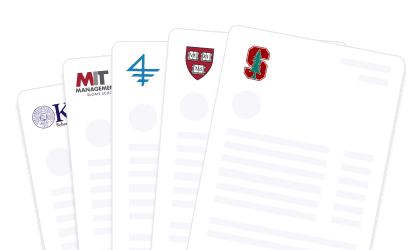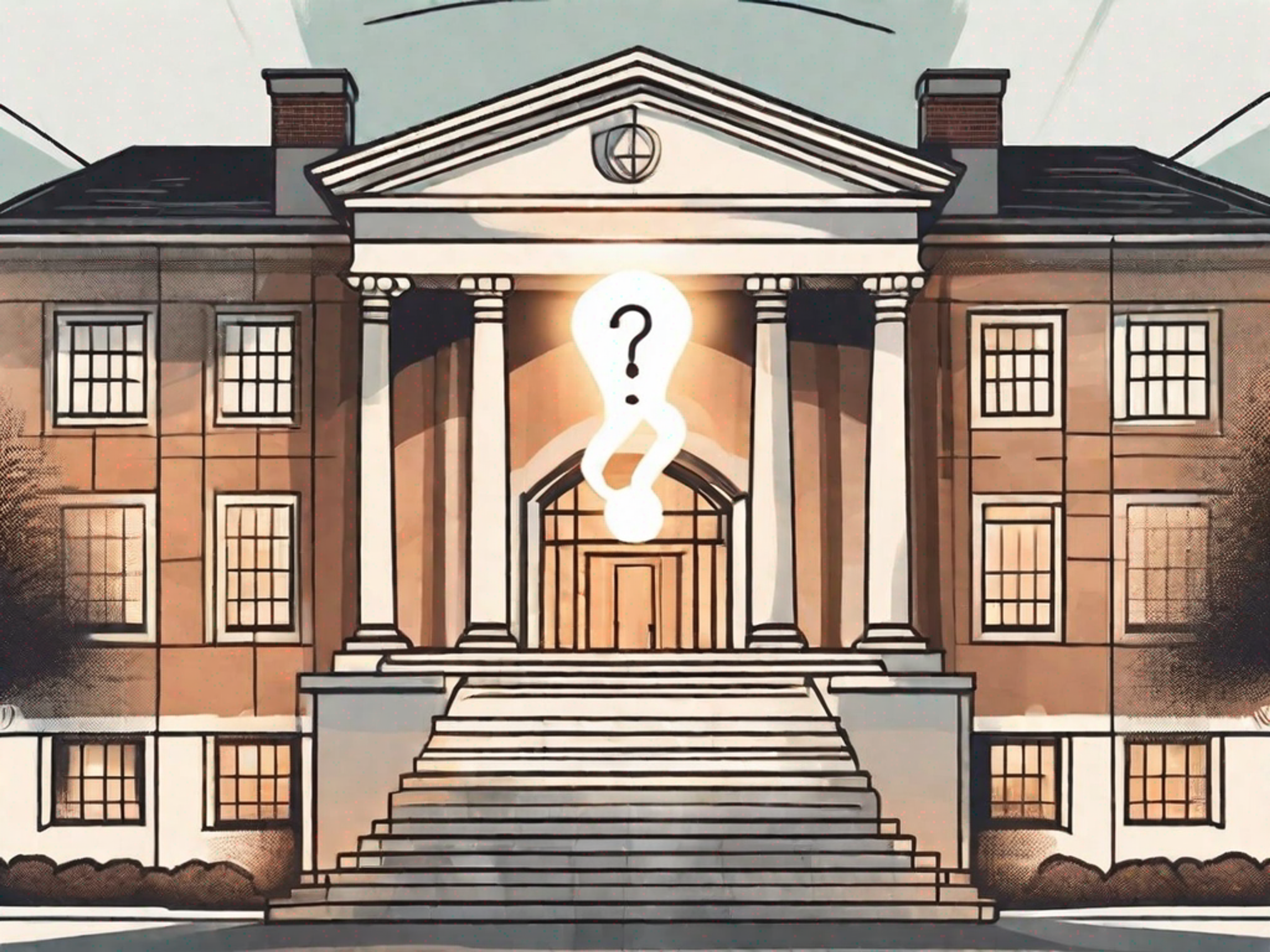Why I Chose Darden for My MBA Program
Matt P, an expert coach and Darden alumnus, provides insight into why his decision to attend Darden created a solid foundation of personal and professional growth.

By Matt P.
Darden MBA Coach | Expert in Admissions
Posted June 13, 2025

Join a free event
Learn from top coaches and industry experts in live, interactive sessions you can join for free.
Table of Contents
When the world shut down in mid-March of 2020, I was faced with an exciting yet somewhat challenging decision to make. After going through the Round 2 admissions cycle for full-time MBA programs, I was delighted to receive a few acceptance offers for equally outstanding MBA opportunities. The long months and hours spent fine-tuning applications were finally starting to pay off, but now the world was grinding to a halt. My idea of what an MBA experience would be like no longer seemed like a reality with countless questions surfacing. What would school be like in COVID? Would I be able to interact with my classmates? Will I be able to get a job out of MBA? Should I even go back to school?
To attempt to answer these questions, I went back to the drawing board. I needed to remind myself what I was looking for in an MBA experience to begin with. I wanted an outstanding education, an environment conducive to personal and professional growth, and to be part of a community that would be a lifelong source of support. After countless calls with admissions representatives, reviews of my notes, conversations with alumni, and soul-searching; the answer was clear. I needed to go to Darden. Why? Here are a few reasons:
1. The Case Method
One of the hallmarks of the Darden experience is the case method. Class discussions are largely student-centric as opposed to lecture-based. I wanted to be part of an environment where I could actively engage with course material rather than just absorb and regurgitate information in a traditional lecture format.
During my application process, I had the opportunity to visit Grounds and attend a first-year Finance course to see the case method in action. The students had come prepared with their analyses of a particularly challenging case and after one opening prompt from the professor, the class began carrying the workload. Perspectives were challenged. Financial model results were discussed and debated. Cultural context and experience from several students in the class encouraged a gradual evolution of the conversation. I was hooked. With the professor guiding the conversation in the form of probing questions to not only elicit participation but also challenge the insights and conclusions of the group, I came away with a much more comprehensive understanding of decision-making and strategic thinking.
The case method provided a means to encourage intellectual growth and curiosity in a manner that is truly reflective of the reality of how most businesses operate and how leaders must make decisions. Like most real-world business scenarios, the information required to make any decision is rarely 100% perfect and clear. Decisions have nuance. Decisions have pros and cons depending on their outcomes. Optimal decision-making requires curiosity and the willingness to listen and incorporate diverse perspectives, findings, and opinions. I find today, more than ever, that experiencing the case method has made me a stronger decision-maker. When faced with unclear, challenging problems to solve in my own career, I am more equipped to probe, understand, and incorporate diverse opinions and information into my decision-making.
Prior to business school, I tended to be more reserved in large group discussions or team meetings. I had opinions and insight that should have been shared in retrospect. The case method helped me build confidence in sharing and contributing within the context of a team. With a growing willingness to participate, discuss, and ask questions, I gradually became a more confident problem-solver. I see this reflected now in my day-to-day role where I’ve become more comfortable challenging assumptions, offering intuition and experience, and identifying benefits and risks of each decision. Much of the success of the case method can also be attributed to a second critical factor in my decision to attend Darden
2. Learning Teams
During the First Year Core Curriculum, students are placed into Learning Teams of five to six people from across different sections to work through the course material and cases together. While operating patterns and rhythms vary, members of each Learning Team are responsible for reading cases and working through assigned questions for each case.
Learning Team meetings offer an opportunity for the group to come together and discuss, educate, and debate each case. This type of supplemental learning environment encourages team members to gain confidence in sharing their work and offering their own experience, intuition, and insight about the assigned cases. My own Learning Team had a diverse makeup of experience ranging from consulting, government, sports, and engineering. Each member’s background and experience played pivotal roles in working through the cases and expanding individual critical thinking. Beyond the educational component, my Learning Team became a critical support system for life in business school. Dealing with the challenges of school, recruiting, and a worldwide pandemic placed greater emphasis on the need for community.
Our daily Learning Team meetings were oriented around case discussion but became important forums for managing stress and developing deeper bonds with one another. We made sure to check in with each other on goals and aspirations for life after Darden so that workloads could be properly balanced and recruiting needs and challenges could be worked through together. Most importantly, the Learning Team became a safe space. The level of inclusivity and openness for feedback and encouragement that came about in our Learning Team is exactly the type of environment I hope to create and foster for any team or group I am part of going forward. I owe all of that to the Darden experience.
3. Career Support
Starting business school in the middle of a pandemic raised several questions from a career perspective. What would my professional life look like? How will companies recruit with COVID restrictions? What will networking look like?
Thankfully, Darden provided incredible support and guidance for navigating all these challenges. The Career Center was instrumental in providing tailored 1-on-1 guidance for articulating career goals and critical, timely feedback for all manner of resumes and cover letters. The frequency and depth of advice and feedback given helped me feel more than equipped heading into the summer internship application and interview process.
The assignment of a Second Year Coach provided another foundation of support and resource for defining my short and long-term goals, practicing behavioral and case interviewing, and weighing internship offers. My experience with my Second Year Coach encouraged me to pursue my current work with Leland today! My coach made herself available for any last-minute eyes on a cover letter, triaging resume bullets, and goal definition. The flexibility, patience, and confidence were all qualities that I found essential in coaching and are the very same qualities I hope to bring through coaching at Leland.
Frequent and dedicated alumni engagement also supplemented the, at times, overwhelming recruiting process. Looking for a contact at XYZ company in ABC function? Often, I found Darden’s Career Center instrumental in facilitating conversations with alumni who wanted to give back and support the next generation of graduates in finding their long-term career path. Company briefings, office hours, and coffee chats (even virtually) were essential in creating connections and guiding my own decision-making in determining my next career steps. More than anything, I appreciated the availability n and empathy, swift action, and support of Darden’s Career Center to my success in recruiting and beyond.
There are several other reasons why I chose Darden, but the above examples illustrate what makes Darden special to me. Regardless of which program you choose, I encourage you to ask yourself what you are ultimately looking to gain from an MBA experience. For me, I’ve gained more than I could ever give back, but I hope this article serves as inspiration to consider all that the Darden program has to offer.
- For more information on the Case Method/Learning Teams, check out this blog!
- For more information on Darden’s recent track record of career success, check out the latest report!
Matt P. is a Darden alumnus and former Darden Second Year Coach. He is also an expert coach with a passion for helping YOU navigate the MBA admissions process. Book a FREE intro call with Matt P. today!
Read these next:
- The University of Virginia Darden School of Business — MBA Program & Application Overview
- How to Choose an MBA Program: The Discerning Student's Guide
- UVA Darden: Future Year Scholars Deferred MBA Program
- Not Every MBA Program is Made Equal–An Overview of the Program Structures of Top Business Schools
- Top 25 Business Schools' Acceptance Rates & Class Profiles (2023)

Written by Matt
5.0
(43)
I have successfully coached many applicants at various stages of the MBA admissions process. Additionally, I was a Second Year Coach during my time at Darden where I coached several students as they navigated the hyper-competitive summer internship process with in-depth resume reviews, story crafting, and case interview prep. My attention to detail, hands-on support, and problem-solving background helped students land coveted internships with MBB and Fortune 500 organizations. Before pursuing an MBA, I was a consultant for healthcare and federal clients providing support with project and program management, data analytics and visualization, and operations management. Post-MBA, I continued my career in consulting focused on business transformation initiatives for clients in the retail, utilities, and biotech industries. Currently, I work for a behavioral health organization leading strategic business transformation efforts across multiple departments. I earned a B.A. in History from the College of William and Mary an MS in Commerce (concentration in Marketing & Management) from UVA, and an MBA from the Darden School of Business at UVA.
Matt has helped clients get into organizations like:
Browse hundreds of expert coaches
Leland coaches have helped thousands of people achieve their goals. A dedicated mentor can make all the difference.



























